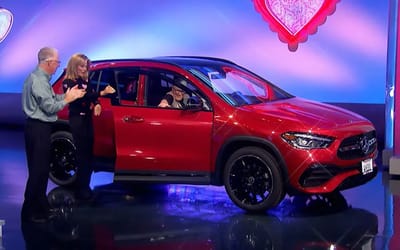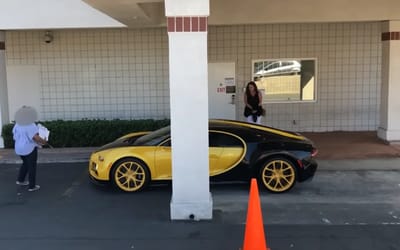Astronomers in Massachusetts were forced to delete an unusual asteroid because all along it was just the Tesla Roadster in space
- Astronomers were left red faced as they mislabeled the Tesla Roadster in space as an asteroid
- Given an official designation, it was deleted 17 hours later
- It has led astronomers to call for better deep space regulation
Published on Jan 23, 2025 at 10:37 PM (UTC+4)
by Daisy Edwards
Last updated on Jan 23, 2025 at 10:37 PM (UTC+4)
Edited by
Tom Wood
A Turkish astronomer in Massachusetts believed he had discovered a previously undetected unusual asteroid heading towards Earth.
He was extremely disappointed when he realised that it was in fact, just the Tesla Roadster.
Less than seventeen hours after its initial discovery, this ‘new asteroid’ was deleted.
The incident has led astronomers to call for more transparency when it comes to deep space travel regulation.
DISCOVER SBX CARS: The global premium car auction platform powered by Supercar Blondie
Houston, we have a…car?
When Turkish astronomer H. A. Güler saw a previously undetected NEO (Near-Earth Object) heading earthside, he was ecstatic, thinking he had just discovered a brand new asteroid.
After using special equipment to test whether it was an artificial object, which failed, the NEO was designated as Asteroid 2018 CN41.
Güler was left red faced when he tracked the asteroid’s path through space and realised the object was travelling on a very recognisable path between Mars and Earth.

It was, in fact, the cherry red 2010 Tesla roadster sent into space by SpaceX.
They were forced to delete the Tesla Roadster
After realizing they had mislabelled it, Asteroid 2018 CN41 was officially deleted off of the Minor Planet Center’s official database and made a statement about the mistake.
Back in 2018, the Tesla Roadster was correctly labelled as a car, but after Güler’s equipment failed and showed it up as an asteroid, its classification was briefly changed.
The car is travelling extremely fast over billions of miles, but not as fast as an asteroid.

This has led astronomers to call for better regulation of deep space, as at the moment, it is largely unregulated.
We hope that the deletion hasn’t left too much ‘space’ in the Minor Planet Center’s database!
As a Content Writer since January 2025, Daisy’s focus is on writing stories on topics spanning the entirety of the website. As well as writing about EVs, the history of cars, tech, and celebrities, Daisy is always the first to pitch the seed of an idea to the audience editor team, who collab with her to transform it into a fully informative and engaging story.





